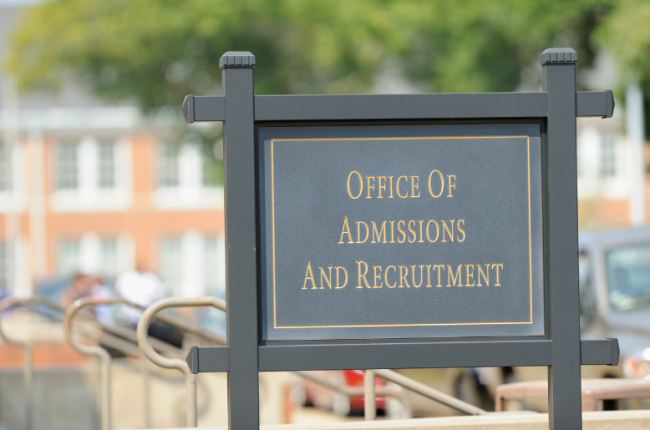You have /5 articles left.
Sign up for a free account or log in.

sshepard/Getty Images Signature
If this headline caught your attention, you are probably well aware of the substantial staff retention and recruitment challenges that enrollment management offices have faced over the past several years. Enrollment leaders are constantly reminded of this uphill battle in our news feeds, in presentation rooms at conferences and in almost every conversation we have with peers at other institutions.
The problem is real, and it’s significant.
I was recently asked what admissions problem keeps me up at night, and without hesitation, I responded that managing my team’s morale was at the top of the list. In the fast-paced world of college admissions, keeping a team’s spirits high can be a daunting task. The repetitive grind—demanding travel seasons, along with the need to make hundreds of seemingly random calls, often to be met with hang-ups and lack of interest—can be soul-crushing for even the most passionate counselors.
For those of us who are responsible for building and growing great student-first teams, it can feel like we don’t have any solutions to provide light at the end of the tunnel. The job has changed, most of us do not have the budget to increase payroll and fewer and fewer new professionals view admissions counseling as a long-term, viable, sustainable and rewarding career.
At Columbia College of Missouri, however, we have discovered and adopted a new idea that is making a difference in our admissions teams. It may help others turn the tide on admissions team morale. It started with our exploration of artificial intelligence–driven funnel management to help staff connect with the right students at the right time.
When we started working with AI to provide deeper and more real-time insights into our funnel, we anticipated that it would allow our teams to do their daily jobs with more precision, speed and efficiency. Our plan was simple: we deployed an AI engine that allowed each counselor to come to work every day and instantly see exactly where each of their students was positioned in a behavioral journey indicating the student’s unique and timely propensity for enrollment. While we believed that this data solution had the potential to increase new enrollment productivity, we were caught off guard by an unintended outcome. Within three weeks of launch, our admissions team’s morale rapidly rose to the highest level that I have seen. Team members have identified our adoption of AI as a positive factor in surveys as well as during individual and team meetings.
So, why has this happened?
Looking back at the conference sessions I’ve attended discussing admissions counselor attrition and retention, we in the admissions field may have poorly prioritized one of the root causes of low employee morale: the negative job satisfaction resulting from the shift of the admissions counselor position from “counselor” to “data wrangler” over the past several years.
Prior to our deployment of AI-driven enrollment management, we had utilized all the traditional methods for assessing where a prospective student stood: we tracked stages and steps on our funnel, attempted to account for various engagement indicators, ran customer relationship management reports, and tried to predict a student’s potential to enroll based on our segmentation models. Our admissions team spent an inordinate amount of time sifting through applicants just to try to figure out where to spend our time—and suffered through hundreds of nonreplies, hang-ups or worse. This just isn’t a motivating way to spend a single day—or a career.
As a self-proclaimed data nerd who wants my work and my team’s work to be data-informed, I was highly intrigued by how an AI program looking at applicant behavioral patterns had such an impact on the morale and motivation of our team. It only took a few conversations to get to the answer: in deploying our AI solution to help the team identify and focus on the best-fit students, we also had given them the data, insights and permission to shift their time and effort away from candidates who did not have interest in attending. Rather than fixating on the quantity of calls, we shifted our perspective to prioritize the relational quality of interactions. Through AI-powered solutions, counselors can focus on their true passion: connecting with students eager to engage with our institution.
This was game-changing.
So, for my peers out there who continue to struggle to keep our profession alive and vibrant, I would offer the following: solutions to team morale can be found in areas beyond compensation. For us, it was the hidden power of AI that allowed our staff to focus their energy on relational engagement with students. For you it may be something else—but it is imperative for all of us as enrollment leaders to drive the innovation and change necessary to turn the tide.








